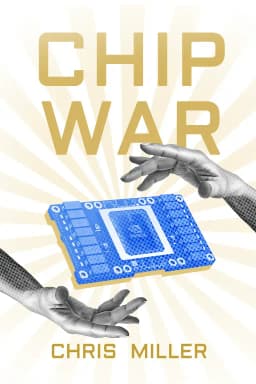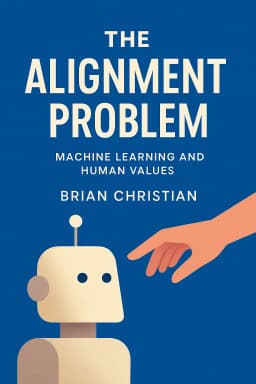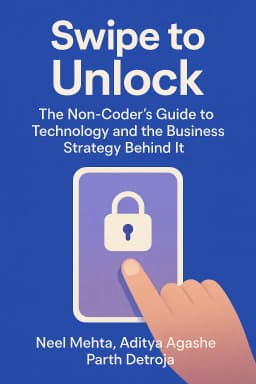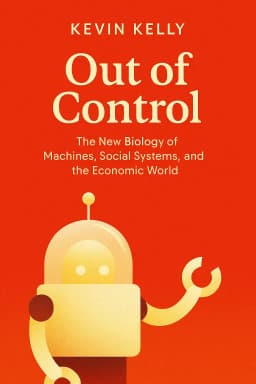
The Hole, Not The Drill
How Technology Will Transform the Work of Human Experts
Golden Hook & Introduction
SECTION
Joe: In one year, eBay's online robot-judges resolve three times more disputes than every single lawsuit filed in the entire US court system. Lewis: Hold on, say that again. Three times more than the entire US court system? That can't be right. We're talking about millions of cases. Joe: Millions. And it's not a prediction. It's a fact from several years ago, and it signals the end of professions as we know them. Lewis: Wow. That is a genuinely staggering thought. That a system most of us associate with selling old collectibles is quietly outperforming a cornerstone of our society. Where does that bombshell come from? Joe: That staggering fact comes from a book that’s been rattling cages for a while now: The Future of the Professions by Richard and Daniel Susskind. Lewis: A father-son duo, right? One's a legal tech guru who's been advising governments for decades, and the other is an Oxford economist. That's a powerhouse combination. Joe: Exactly. It's not just a tech book; it's a deep, sociological look at the very nature of expertise. They combine legal history with economic foresight to argue something profound: the way we get expert advice—from our doctors, our lawyers, our accountants, our teachers—is about to be completely, and irreversibly, dismantled. Lewis: Dismantled is a strong word. It sounds almost violent. Most people think their jobs are safe because they require a human brain, a specialized degree. But this book seems to be saying, 'think again.' Joe: It's saying more than that. It's asking a fundamental question: why is a system like eBay's even necessary in the first place? And the answer, according to the Susskinds, is that the traditional system, what they call the 'Grand Bargain,' is fundamentally broken.
The Grand Bargain is Broken
SECTION
Lewis: Okay, 'The Grand Bargain.' That sounds like something out of a medieval fantasy novel. What exactly is it? Joe: It's the unspoken deal that has governed professions for centuries. Society grants certain groups—doctors, lawyers, architects, clergy—a monopoly. They get to set their own standards, control who gets in, and charge high fees. In return, we, the public, are supposed to get trustworthy, reliable, and expert service. We trust them with our lives, our fortunes, our secrets. Lewis: Right, it's a trade-off. We give them status and power, and they promise to act in our best interest. It’s built on trust. That seems like a pretty good deal. Joe: It seems like a good deal. But the Susskinds deliver a devastating critique. They use this brilliant analogy. They say the services of the professions, like the Ritz Hotel, are 'open to all.' Lewis: Oh, I see where this is going. The doors of the Ritz are open to me, but my wallet is firmly shut. It's technically available, but in reality, it's only for the very few who can afford it. Joe: Precisely. The book argues that the professions have become unaffordable, inaccessible, and intentionally opaque. They use jargon and complex processes that keep the public out and justify their high fees. The 'Grand Bargain' has curdled into a system that protects the professionals more than the public they're meant to serve. Lewis: That's a pretty cynical take, but it rings true. Anyone who's ever gotten a bill from a lawyer or tried to understand a medical explanation knows that feeling of being on the outside of a very exclusive club. Joe: And the book has this perfect story to illustrate the core problem. It's about a power tool manufacturer. The trainers show new executives a picture of their best-selling, gleaming power drill and ask, "What do we sell?" The execs all say, "We sell power drills." Lewis: Seems like a safe answer. Joe: The trainer then says, "Wrong." And they flip to the next slide, which is just a picture of a clean, simple hole in a wall. "That," the trainer says, "is what our customers actually want. They don't care about the drill. They want the hole." Lewis: Wow. Okay. So the professions are selling us the drill—the hours, the consultations, the complex procedures—when all we really want is the hole. We want our legal problem solved, our illness cured, our taxes filed. We want the outcome. Joe: Exactly. And technology is getting incredibly good at just giving us the hole, without the expensive, time-consuming drill. This is why the book, despite its academic rigor, has resonated so much. It's praised for its deep insights, but some readers do find it a bit dense. Our job today is to drill right to that core. Lewis: But wait, I have to push back on this a little. We trust these people for a reason. My doctor went to medical school for a decade. My lawyer passed the bar. They have a fiduciary duty, a code of ethics. Isn't that human element—the judgment, the experience, the duty of care—worth the price? Are we really ready to trade that for a cheaper, automated 'hole in the wall'? Joe: That is the central anxiety, and the book tackles it head-on. The authors aren't saying that expertise itself is worthless. They're saying the current delivery mechanism for that expertise is broken. The traditional, one-to-one, bespoke model is like a medieval craft guild in an age of mass production. It's inefficient by design. Lewis: A craft guild. I like that. It’s artisanal, handcrafted legal advice. Sounds nice, but also incredibly expensive and slow. Joe: And often, not even that good! The book points out that the system creates massive inequalities. The best expertise is concentrated in the hands of a few, serving only the wealthy. For everyone else, it's a struggle. The 'Grand Bargain' isn't a bargain if most people can't even get to the negotiating table. Lewis: Okay, I'm convinced. The old model is a gilded cage. It looks impressive from the outside, but it's trapping knowledge and keeping it from the people who need it. So what's the alternative? If the old world is crumbling, what does this 'post-professional' future actually look like? Are we all just getting our medical advice from WebMD and our legal advice from a chatbot?
The Post-Professional Future
SECTION
Joe: That's the million-dollar question, and the book's answer is both thrilling and a little terrifying. The key isn't just automation. It's what the Susskinds call the 'dismantling' and 'rebuilding' of expertise. And the evidence is already all around us. Lewis: You mean like the eBay example. Joe: Exactly. But there are others that are just as mind-blowing. Take education. Harvard University is nearly 400 years old. In all that time, a certain number of students have physically attended. But the book points out that in a single year, more people signed up for Harvard's online courses than have attended the physical university in its entire history. Lewis: That's insane. It's a total paradigm shift in access. Knowledge that was once reserved for the elite, for those who could get into Cambridge, Massachusetts, is now available to anyone with an internet connection. Joe: Or think about healthcare. Every month, the number of unique visits to the WebMD network is greater than the total number of patient visits to all doctors working in the United States. Lewis: Okay, that one gives me pause. Because WebMD is famous for convincing you that your common cold is a rare, incurable disease. There's a quality control issue there, isn't there? Joe: There is, and that's a huge part of the discussion. But what these examples show is a massive shift in behavior. People are no longer content to be passive recipients of knowledge from a gatekeeper. They are actively seeking it out themselves. The professional's monopoly on information is gone. Lewis: So the walls of the fortress are down. The knowledge has escaped. What happens now? Joe: Now we see the 'dismantling.' The book argues that professional work isn't a single, monolithic activity. It's a bundle of different tasks. And technology allows us to unbundle them. They call this 'decomposition.' Lewis: Decomposition. Sounds a bit grim, like something from a crime scene. Joe: It's a powerful idea. Think of a lawyer working on a contract dispute. That work can be broken down into maybe twenty distinct tasks: interviewing the client, legal research, drafting documents, negotiating, appearing in court, and so on. In the old model, one expensive lawyer did all twenty tasks. Lewis: Right, the artisanal, handcrafted model. Joe: In the new model, you decompose the work. Maybe an online system handles the initial client interview with a smart questionnaire. A powerful AI, trained on millions of past cases, does the legal research in seconds. A para-professional in a lower-cost location drafts the initial documents using a template. And the expensive human lawyer? They only step in for the truly high-value tasks, like strategy and negotiation. Lewis: So it's like an assembly line for knowledge work. Instead of one master craftsman building a whole car, you have specialists—and some of them are robots—each doing one part of the process efficiently. Joe: That's a perfect analogy. And this is where the new jobs emerge. The Susskinds don't just predict doom and gloom. They foresee the rise of new roles: 'knowledge engineers' who design these systems, 'process analysts' who decompose the work, and 'data scientists' who find patterns in the information. These are the architects of the new professional landscape. Lewis: That makes sense. You still need humans, but they're doing different things. They're designing the system, not just turning the crank. But I have to come back to the big fear here. This all sounds incredibly efficient for things like tax returns or simple contract disputes. But what about the really human stuff? I don't want a robot telling me I have cancer. I don't want an AI system deciding a child custody case. Where is the line? What about empathy? Joe: That is the ultimate objection, the one that everyone raises. The 'Empathy Objection.' And the book's response is sharp, and frankly, a little brutal.
Synthesis & Takeaways
SECTION
Lewis: Okay, let's hear it. How do the Susskinds solve the empathy problem? Joe: They don't try to argue that machines can feel empathy. Instead, they flip the question and ask: are human professionals really as empathetic as we think they are? Lewis: Ouch. That's a provocative question. Joe: It is. But they back it up. They cite research, for example, showing that the average doctor interrupts their patient within eighteen seconds of them starting to tell their story. Lewis: Eighteen seconds! That's barely enough time to say hello. I've definitely experienced that. You feel like you're just another task on their checklist. Joe: Exactly. We have this idealized image of the wise, caring professional, but the reality is often rushed, impersonal, and lacking in real connection. The book's point is that we're comparing the potential future of machines to a romanticized, often inaccurate, version of the human present. A well-designed system could, in theory, provide a more patient, consistent, and 'pseudo-empathetic' experience than a burnt-out human. Lewis: Wow. So the argument is that the bar for human empathy is actually much lower than we admit, and maybe a machine could be programmed to clear it. That's a deeply unsettling but powerful idea. Joe: It reframes the entire debate. The book argues that the ultimate moral question isn't "human versus machine." The real moral question is this: in a world where we can liberate practical expertise and make it available to everyone, affordably and accessibly, do we have the right to keep it locked up in traditional, inefficient, and exclusive institutions just to preserve the status quo? Lewis: So the real future isn't about replacing your doctor with a robot, but about redesigning the entire system so that expert knowledge isn't a scarce, luxury resource anymore. It's about turning it into a public utility. Joe: That's the core of it. The Susskinds are making a moral case for transformation. They argue we have an obligation to build this new future because the old one is failing too many people. The future of the professions is less about professionals and more about the people they are supposed to serve. Lewis: It leaves you with a lot to think about. It forces you to look at these institutions we take for granted and ask if they're really working. It makes me think about the last time I needed an expert. Was it affordable? Was it easy? What part of that experience could a system, or a new kind of professional, do better? Joe: That's the perfect question to end on. It's a challenge to all of us, whether we are providers or consumers of expertise, to imagine a better way. We encourage our listeners to think about that. What has your experience been? Let us know your thoughts. Joe: This is Aibrary, signing off.









